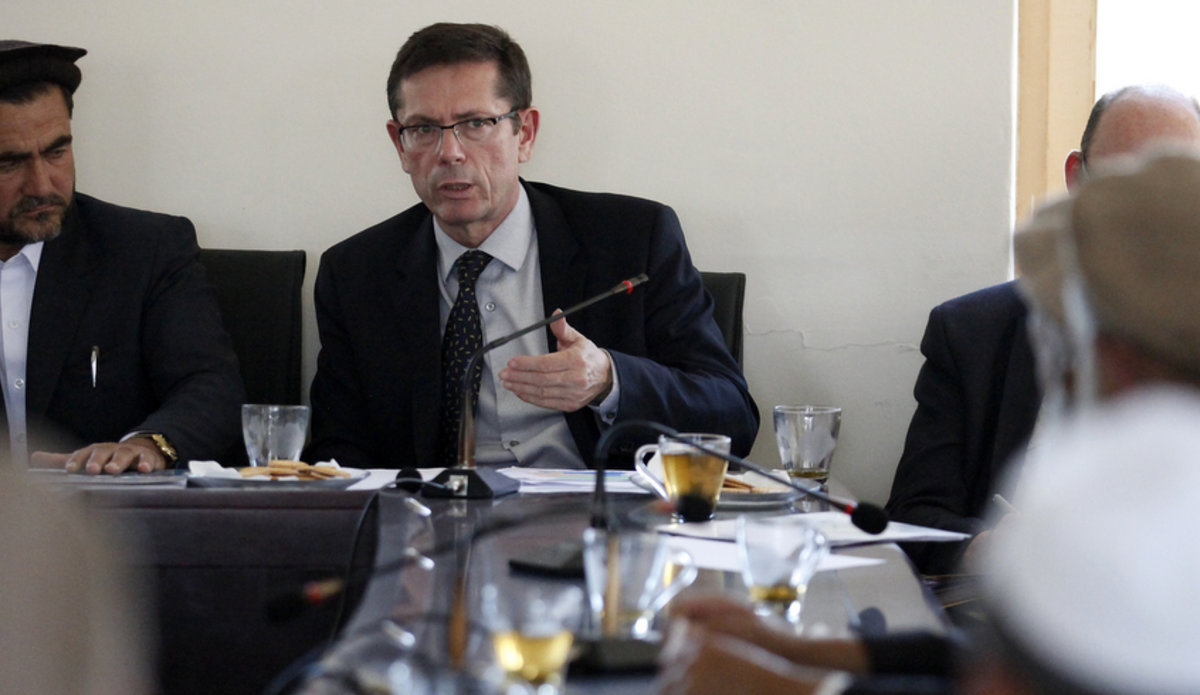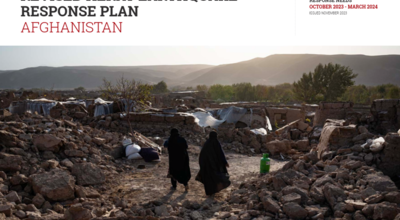UN rights official cites Afghanistan’s new opportunities for peace amid growing violence
KABUL - At the end of a seven-day mission to Afghanistan, a senior United Nations’ human rights official described the “paradoxical situation” in which the country finds itself.
“On the one hand, there are new opportunities for peace talks that would have been unimaginable only a few months ago,” said Ivan Šimonović, UN Assistant Secretary-General for Human Rights. “On the other, the conflict looks set to intensify as insurgents test the strength of the security forces hoping to gain leverage in future negotiations.”
Mr. Šimonović, who visited Kabul and the provinces of Nangarhar and Kapisa, said recent violence underlined the fact that it would be Afghan civilians who pay the price, with more work needed to be done to protect them.
“2014 was already a terrible year for the civilian population of Afghanistan and figures for the first quarter of 2015 have confirmed that negative trend,” he said referring to statistics compiled by the UN Assistance Mission in Afghanistan (UNAMA), which pointed to the deaths of 655 civilians and injuries to 1,155 more in the first quarter of 2015.
During his second official visit to Afghanistan, the Assistant Secretary-General focused on the increasingly difficult security situation following the withdrawal of foreign troops and the transfer of security tasks to the Afghan National Security Forces.
He met with children detained for conflict-related crimes, including attempted suicide bombing, as well as civilian victims and their doctors at an emergency hospital in Kabul. Mr. Šimonović was in Jalalabad on Saturday at the same time as a suicide attack by anti-Government elements on a crowded marketplace, which killed at least 35 people.
“It is unacceptable that Afghans should face such violence on a daily basis,” he said. “There can be no doubt that the use of tactics of this kind represent war crimes, and those responsible for organizing or perpetrating such attacks must be brought to justice.”
While encouraging Afghanistan to institutionalize torture prevention by ratifying the Optional Protocol to the Convention against Torture, which would lay the basis for a national inspection mechanism for places of detention, Mr. Šimonović welcomed the Government’s commitment to eradicating that scourge.
“I was greatly encouraged by President Ghani’s and Chief Executive Abdullah’s personal commitment to ending torture in Afghan detention facilities, and the steps being taken to prepare a national action plan on torture prevention,” he said. “These institutional reforms must be reinforced by strict accountability measures. Torturers must be prosecuted and punished, not transferred to other positions.”
Mr. Šimonović also helped launch a new report by UNAMA and the UN Human Rights Office on barriers to justice still faced by women.
“Clearly the gains for women’s rights in Afghanistan need to be reinforced and protected,” Mr. Šimonović said. “I welcome the appointment this week of four women ministers, and the imperative now should be to ensure women’s representation in key institutions like the police and judiciary, and participation in the peace process.”
 UN
UN








